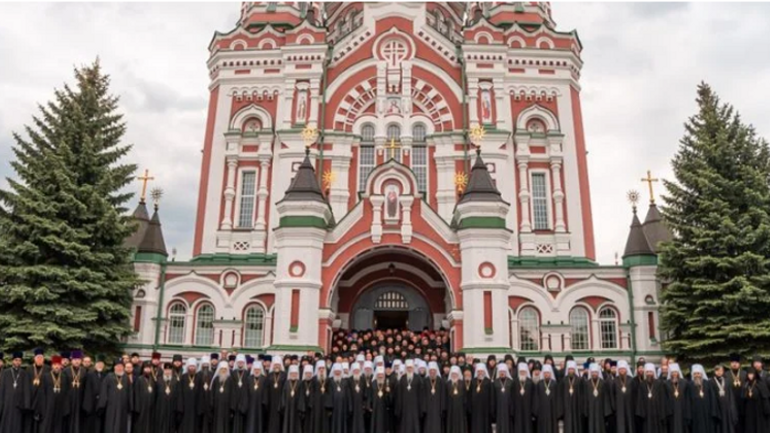Changes to the Statute of Independence instead of cutting ties with Moscow. The UOC-MP holds a Council

Based on the results of the work, the Council has arrived at the following decisions:
1. The Council condemns war as a violation of God's commandment, "Thou shalt not kill!" (Exodus 20:13) and sympathizes with all those who suffered in the war.
2. The Council appeals to the authorities of Ukraine and those of the Russian Federation to continue the negotiation process and seek an efficient and sensible way to stop the bloodshed.
3. We disagree with the position of Patriarch Kirill of Moscow and All-Russia on the war in Ukraine.
4. The Council approved the pertinent additions and amendments to the Statute on the Administration of the Ukrainian Orthodox Church, which testify to the complete independence and autonomy of the Ukrainian Orthodox Church.
5. The Council approves the resolutions of the Councils of Bishops of the Ukrainian Orthodox Church and the decisions of the Holy Synods of the Ukrainian Orthodox Church, which were held after the last Council of the Ukrainian Orthodox Church (July 8, 2011). The Council approves the activities of the Department of Affairs and Synodal Institutions of the Ukrainian Orthodox Church.
6. The Council considered renewing chrism-making in the Ukrainian Orthodox Church.
7. During martial law, the relations between the dioceses and the church leadership center are either strained or absent. Thus, the Council considers it expedient to give eparchial bishops the right to decide independently on certain issues of eparchial life within the competence of the Holy Synod or the Primate of the Ukrainian Orthodox Church while informing the clergy (when possible).
8. Recently, a new pastoral challenge has been particularly acute for our Church. During the three months of the war, more than 6 million Ukrainian citizens were forced to go abroad. These are primarily Ukrainians from the southern, eastern and central regions of Ukraine. Many of them are faithful to the Ukrainian Orthodox Church. Therefore, the Kyiv Metropolitanate of the Ukrainian Orthodox Church receives appeals from various countries with a request to open Ukrainian Orthodox parishes. It is obvious that many of our compatriots will return to their homeland, while many will stay abroad. In this regard, the Council expresses its deep conviction that the Ukrainian Orthodox Church cannot leave its faithful without spiritual care. It must support them in their trials and organize church communities in the diaspora. It is necessary to further develop the mission abroad among Orthodox Ukrainians to preserve their faith, culture, language and Orthodox identity.
9. Being aware of the special responsibility before God, the Council expresses its deep regret over the lack of unity in Ukrainian Orthodoxy. The Council sees the schism as a deep painful wound on the Church's body. It is deplorable that the recent actions of the Patriarch of Constantinople in Ukraine, which resulted in the formation of the "Orthodox Church of Ukraine", only deepened misunderstandings and led to physical confrontation. However, the Council does not lose hope of resuming dialogue even in such crises. For the dialogue to take place, the OCU representatives need to:
- stop the seizure of churches and forced transfers of parishes of the Ukrainian Orthodox Church.
- acknowledge the fact that their canonical status, as enshrined in the "Statute of the Orthodox Church of Ukraine", is non-autocephalous and significantly inferior to the freedoms and opportunities in church activities provided by the Statute of the Ukrainian Orthodox Church.
- resolve the issue of canonicity of the hierarchy of the OCU, for the Ukrainian Orthodox Church (like for most Local Orthodox Churches), it is quite obvious that recognizing the canonicity of the hierarchy of the OCU is vital to restoring the apostolic succession of its bishops.
The Council expresses its deep conviction that the key to the success of the dialogue must be the desire to restore Church unity and the sincere desire to build one's life on the principles of Christian conscience and moral purity.
10. In conclusion, the Council offers a prayer of thanksgiving to the Merciful Lord for the possibility of fraternal communication and expresses hope for an end to the war and reconciliation of enemies. "Grace, mercy, and peace will be with us, from God the Father and from Jesus Christ the Father’s Son, in truth and love." (2 John 1:3).









